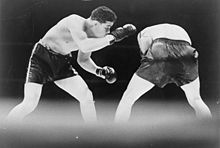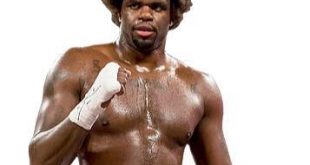By Scoop Malinowski
Sometimes in boxing it actually pays to lose.
Consider this: After defeating Joe Louis by KO 12 in 1936 in Yankee Stadium, Max Schmeling justifiably expected a title shot against Heavyweight champion James J. Braddock, who upset Max Baer for the title the previous June. Madison Square Garden had a contract with Braddock for the title defense and also sought a Braddock-Schmeling title bout. But unknown to the public, the manager of Joe Louis, Mike Jacobs and Braddock’s manager Joe Gould had been planning a Braddock-Louis fight for months.
Of course, Schmeling was snubbed and Louis got the opportunity to fight for Braddock’s title and won by KO 8 in 1937 in Chicago. Braddock and Gould would eventually earn in excess of $150,000 from this advantageous arrangement cleverly negotiated by Gould.
This brilliant bit of business maneuvering by Gould and the 32-year-old Braddock makes you wonder how many more times in future boxing history such an arrangement was arranged – where the fading, aging champion holds tremendous leverage and his team negotiate a hidden agreement where they obtain a percentage of the young, future champion’s earnings?
By the way, Braddock only had one more pro fight after he lost the title to Louis, a split decision win over Tommy Farr in January of 1938 in Madison Square Garden.
Braddock didn’t need to fight anymore – for he had the income of the percentage of all of Joe Louis’s fights for the next ten years. Joe Louis would hold the world title until 1950 when he lost it to Ezzard Charles in Yankee Stadium by 15 round decision.
So now you understand that sometimes in boxing it actually pays to lose…
And some of the biggest fights in history when a fading, aging champ loses to the younger, future cash cow, franchise money maker, could fall under suspicion of possibly having the famous Gould/Braddock clause…
Could De La Hoya vs Mayweather, De la Hoya vs Hopkins, Deontay Wilder vs Bermane Stiverne, Sugar Ray Leonard vs Roberto Duran II, or Cassius Clay vs Sonny Liston have implemented the Gould/Braddock 10% clause or some kind of variation of it? Anything is possible in boxing…
 IBO Boxing Honesty and Integrity
IBO Boxing Honesty and Integrity



